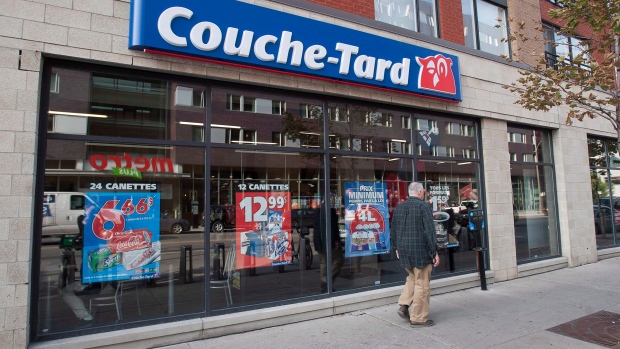Apr 21, 2016
Couche-Tard’s fear of a takeover flies in the face of its M&A strategy

ANALYSIS: Corporate governance laws are turning out to be anything but convenient for the founders of Alimentation Couche-Tard (ATDb.TO), the Quebec-based convenience store firm.
“It’s investors in Toronto that are blocking” the company’s effort to keep a grip on Couche-Tard, Founder and Executive Chairman Alain Bouchard told the La Presse newspaper in a French language interview earlier this week. “I’ve talked to governance people from Toronto. They’re standing high on their pedestal and they’re lecturing us. I don’t have time to waste with those types of people. I’m a bit fatalist, but if this forces the sale of Couche-Tard, so be it.”
The company sparked a debate over the role of dual-class shares and Quebec economic nationalism when Bouchard complained that the company’s future may be in doubt if the company’s owners are forced to give up their disproportionate voting-shares.
Bouchard is worried about a sunset clause on the company’s dual-class share structure. The founders currently own about 22 per cent of the company, but control a majority of votes with multiple-voting shares. Those shares must be phased out when the last of Couche-Tard’s founders turn 65 – and that occurs in 2021.
Quebec lawmakers say they support Couche-Tard; indeed, Finance Minister Carlos Leitao suggested Investissement Quebec could help put together a group of investors that could hold “a certain percentage” of Couche-Tard shares.
Governance rules and economic nationalism don’t mix, one expert told BNN.
“A sunset clause is acceptable for a limited period of time in order for the founders to grow the company but we are well past that date in the Couche-Tard context,” according to Anita Anand, a professor at the University of Toronto’s Faculty of Law.
The fear of a hollowing out of Quebec’s corporate class is easy to understand. In just the past few months large Quebec-based companies such as Rona and St-Hubert have been taken over. If Couche-Tard goes, who is next?
There is much for Quebecers to be proud of when it comes to Couche-Tard. The value of the company’s stock has surged more than 600 per cent since its initial public offering back in 1986. It has emerged as a dominant force globally with more than 11,000 stores around the globe - less than 900 of which are in Quebec and the Maritimes. By contrast, the company has about 700 stores in Florida, more than 1,000 in Sweden – there are even 36 stores under the company’s Circle-K banner in Macau.
Would the company have seen such tremendous growth had governments in the U.S. or Sweden considered their local convenience stores cultural or economically significant assets that needed to be protected from foreigners merely looking to ship profits back to Quebec?
Couche-Tard is a Canadian success story, but it can stand on its own two feet without special government protection, according to BNN markets commentator Andrew McCreath.
“(Alain) Bouchard and his team have done a tremendous job of creating a tremendous amount of wealth. But they are convenience stores – what is there to protect?,” he said on BNN Thursday.
Extending the company’s dual-class share structure would not protect the company – but merely the founders of the company – who are already billionaires, said McCreath.
“It’s ridiculous to think the government is going to protect the top 1-basis point of the population regardless of whether there is business logic or economic logic behind that decision.”


